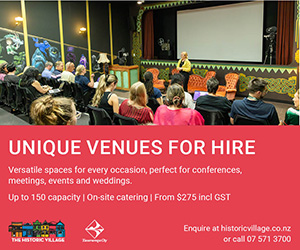The beginning of the year is often a time when we see the most movement in the employment market as people have generally taken some time to consider the year ahead and perhaps decide on a new approach to their career.
Having dealt with thousands of recruitment processes over the years, generally once the employment agreement is signed, my role with the company as a recruiter has finished.
However, recruiting a great candidate is only part of the process. The induction and on-boarding process for new employees is also an imperative part of what happens, but often it is glossed over or rushed. Creating positive first impressions and generating genuine engagement from your new employees will pave the way to a successful employee employer partnership.
Starting a new role within a new organisation is a daunting process. There are new managers, colleagues, systems and processes, values and cultures to get to know and learn. As an employer you are also wanting your new employee to be as productive as possible as quickly as possible.
Sink or swim
So often I hear of sink or swim type of scenarios with new employees, which can make those first few weeks incredibly difficult for a new recruit. Is that really what we want?
We need to provide an induction and on-boarding programme that adds to the excitement of a new role and creates passion, enthusiasm and engagement. This can even be generated from before the employee starts on day one.
Having a clear process for inductions and on-boarding really makes a huge difference and paves the way for a successful partnership.
One of the first areas you could commence with as part of your induction process is contacting employees prior to their start date with any information they may find useful such as relevant organisation information, upcoming projects they may be able to read about, or research, and it may be that there is an opportunity for them to meet some of their colleagues prior to starting. The notice period can be long, so keeping in touch during this period is key.
Another really basic start is to have your new employees’ workspace and technology ready to go.
Computers, log-ins, email addresses, phones, security passes, anything they need to do their job, should be organised and ready to go.
Impart knowledge
Arrange a tour of the facilities, introductions, health and safety and HR inductions. It can be useful to get staff from different divisions within the organisation to give inductions relevant to their division. It can be a lot of information to absorb all at once, so spreading these out over the course of a week is a good approach.
The relationships that your new employee builds in those first few days can be vital, so it’s great if there can be an opportunity for people to welcome and get to know the new employee and vice versa. It’s also a good opportunity to get the team together.
Get mentoring
In that first week a buddy or mentor system may be relevant – team the new employee up with the high achievers in your organisation as it can be a great way for that person to gain insight into how the business operates.
We all know how nerve-wracking a new job can be until we find our comfort zone.
Adding value and being valued are some of the top drivers for employees. Therefore, communicate your expectations – up to the first three months initially is a great start. Keep it simple. However, make it clear what you want them to achieve within the specified timeframe. It also sets the benchmark for longer term expectations around KPI’s.
Having a clear process for inductions and on-boarding really makes a huge difference and paves the way for a successful partnership. They will feel welcomed and valued, and quickly have an understanding of the company brand, values, culture and strategy.


















